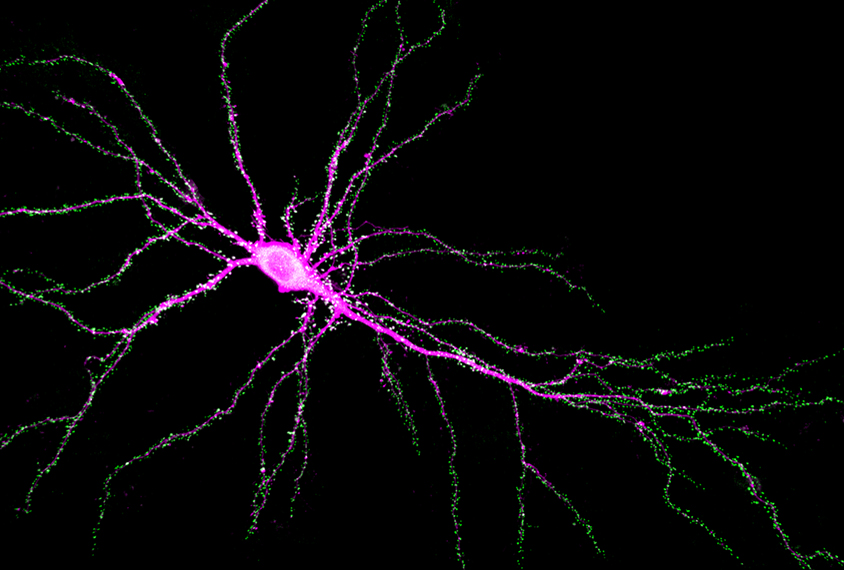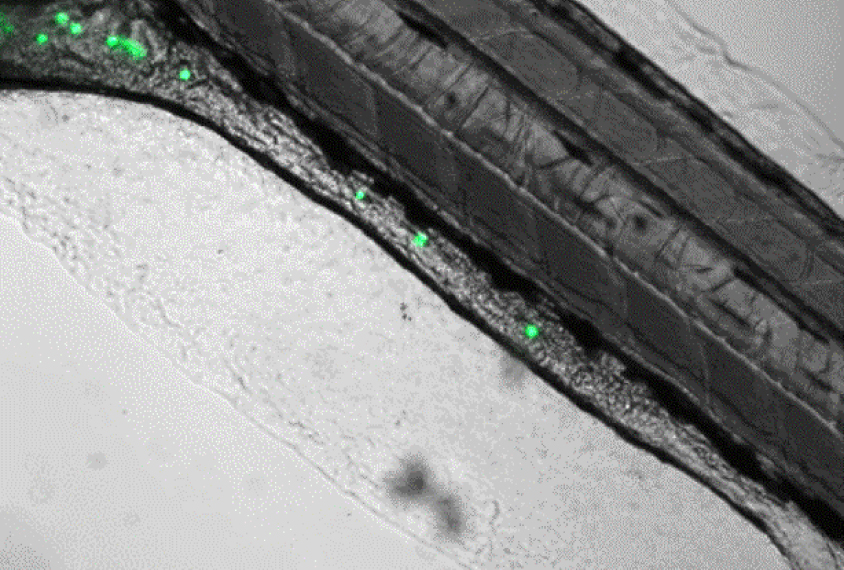SYNGAP1 2020
Recent articles
Reactions from the 2020 SYNGAP1 Scientific Conference
Spectrum is covering the 2020 International SYNGAP1 Scientific Conference, which took place virtually because of the coronavirus pandemic. Here we’re highlighting researchers’ reactions to noteworthy presentations.

Reactions from the 2020 SYNGAP1 Scientific Conference
Spectrum is covering the 2020 International SYNGAP1 Scientific Conference, which took place virtually because of the coronavirus pandemic. Here we’re highlighting researchers’ reactions to noteworthy presentations.
Zebrafish and ‘Smurf cakes’ link autism gene mutation to digestive woes
Mutations in a top autism gene called SYNGAP1 slow the rate at which zebrafish digest food and pass waste, and may also disrupt gut function in people.

Zebrafish and ‘Smurf cakes’ link autism gene mutation to digestive woes
Mutations in a top autism gene called SYNGAP1 slow the rate at which zebrafish digest food and pass waste, and may also disrupt gut function in people.
Mice reveal roots of sensory issues tied to top autism gene
Mice with mutations in the autism-linked gene SYNGAP1 have trouble sensing touch, which may stem in part from brain-circuit alterations and dulled alertness.
Mice reveal roots of sensory issues tied to top autism gene
Mice with mutations in the autism-linked gene SYNGAP1 have trouble sensing touch, which may stem in part from brain-circuit alterations and dulled alertness.
Explore more from The Transmitter
Xiao-Jing Wang outlines the future of theoretical neuroscience
Wang discusses why he decided the time was right for a new theoretical neuroscience textbook and how bifurcation is a key missing concept in neuroscience explanations.
Xiao-Jing Wang outlines the future of theoretical neuroscience
Wang discusses why he decided the time was right for a new theoretical neuroscience textbook and how bifurcation is a key missing concept in neuroscience explanations.
Memory study sparks debate over statistical methods
Critics of a 2024 Nature paper suggest the authors failed to address the risk of false-positive findings. The authors argue more rigorous methods can result in missed leads.

Memory study sparks debate over statistical methods
Critics of a 2024 Nature paper suggest the authors failed to address the risk of false-positive findings. The authors argue more rigorous methods can result in missed leads.
Attention not necessary for visual awareness, large study suggests
People can perceive some visual information even if they do not pay direct attention to it.

Attention not necessary for visual awareness, large study suggests
People can perceive some visual information even if they do not pay direct attention to it.